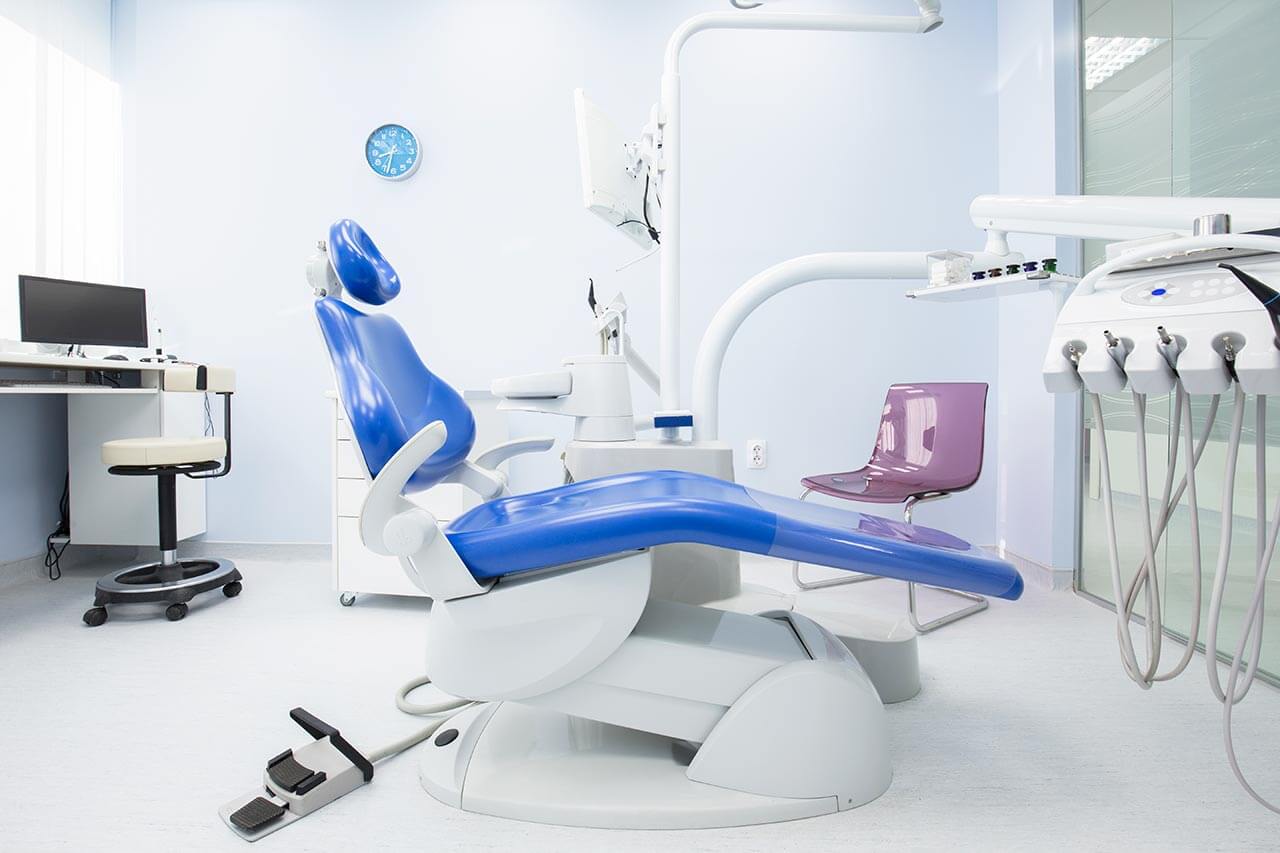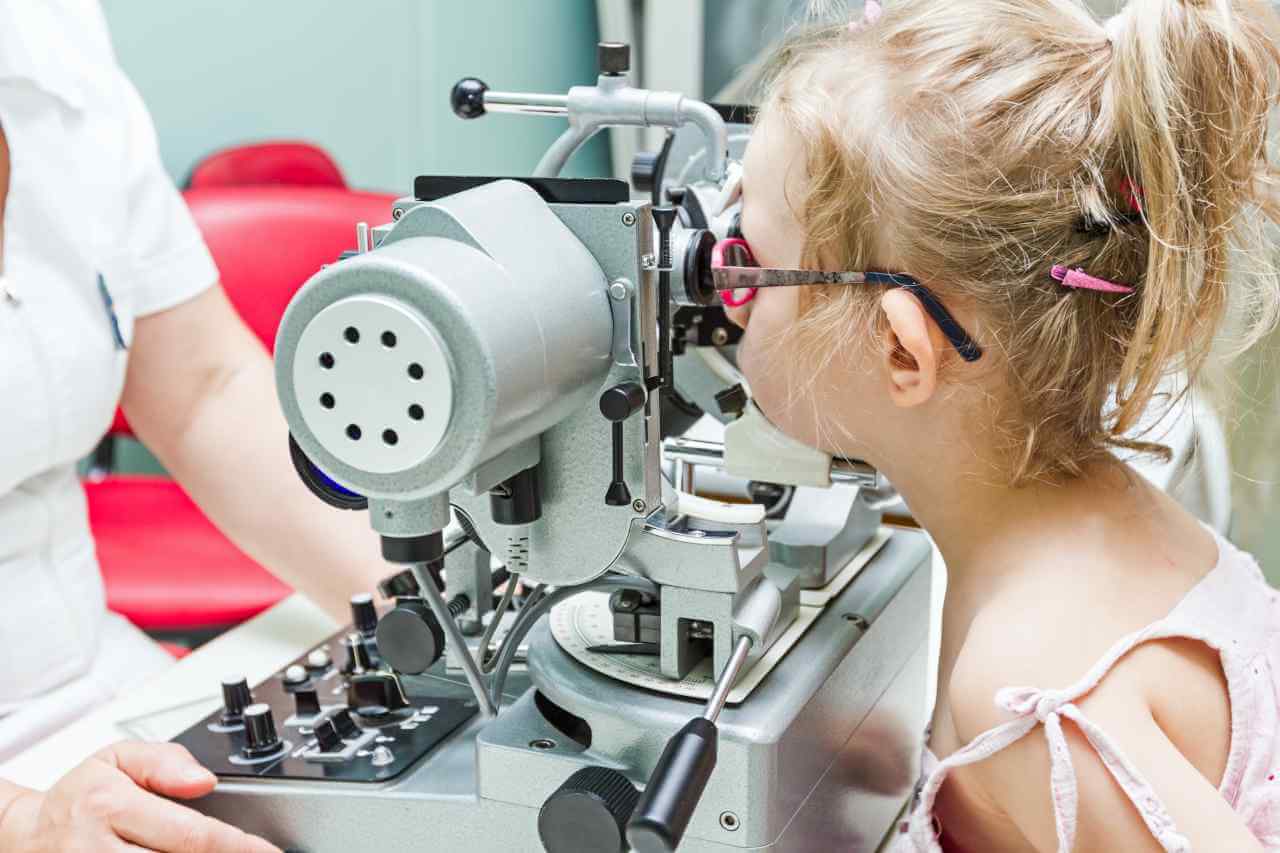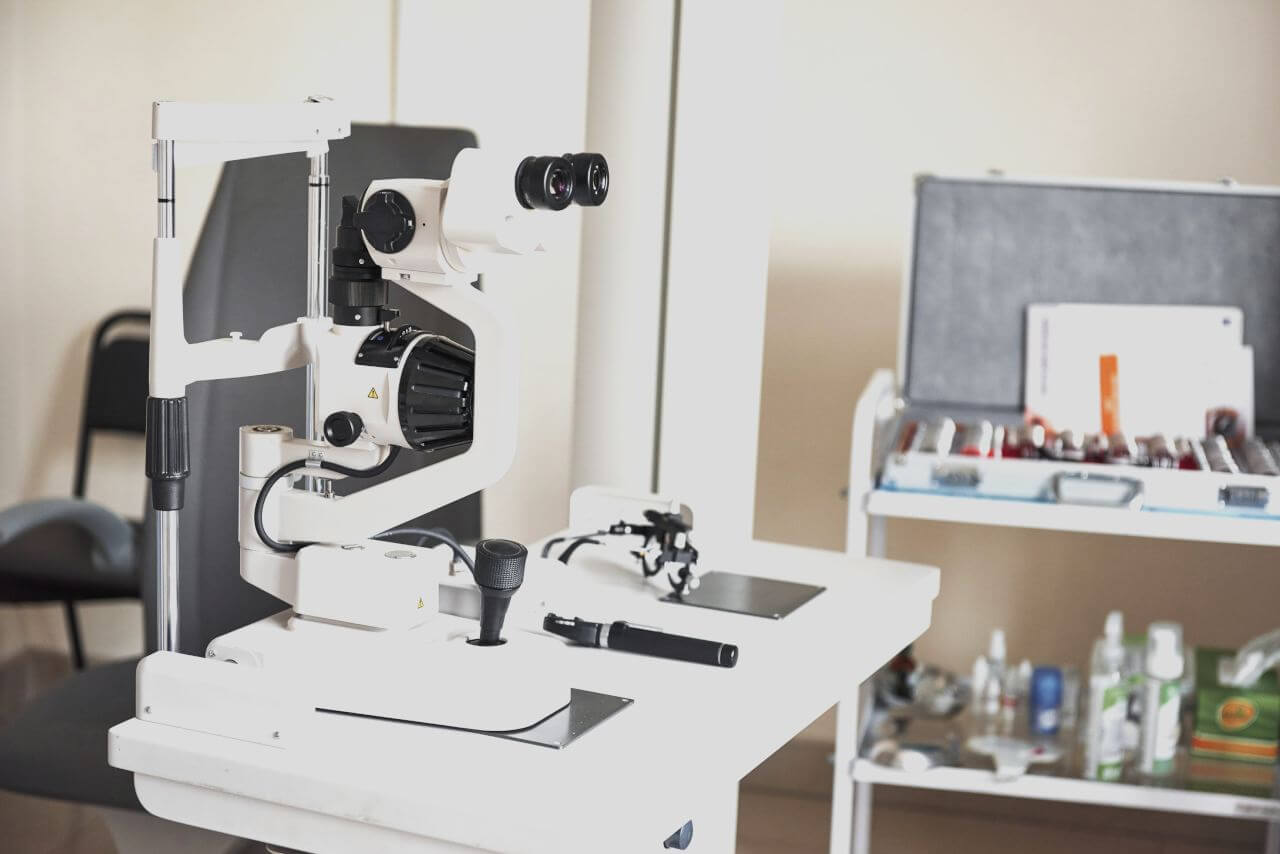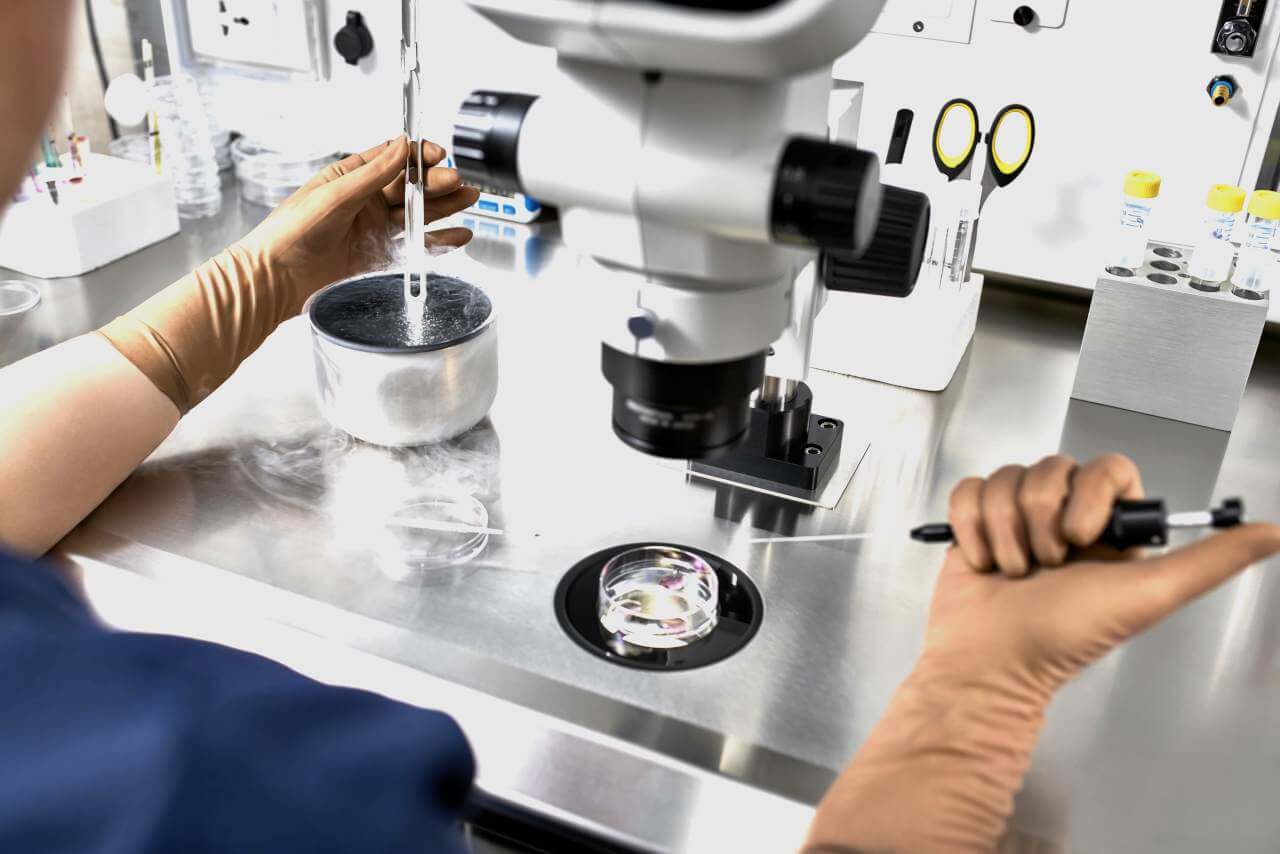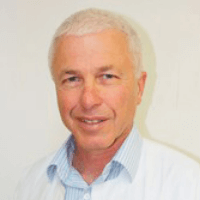
About the Department of Adult and Pediatric Ophthalmology at Shamir Medical Center Beer Yaakov
The Department of Adult and Pediatric Ophthalmology at the Shamir Medical Center Be'er Ya'akov offers all the diagnostic and therapeutic options of modern medicine for patients with eye diseases of any severity. In most cases, patient care is provided on an outpatient basis. The department has 18 beds for patient hospitalization. The surgical interventions are performed in two modern operating rooms with state-of-the-art medical equipment for the most effective and sparing treatment. The medical facility began its work in 1958 and over the decades has won leading positions in the Israeli medical arena, and has also gained wide recognition abroad. The Chief Physician of the department is Prof. Dr. med. Avni Itzik.
The department has state-of-the-art medical equipment for the diagnostics and treatment of ophthalmic diseases, including tomography scanners and laser therapy devices. The department's ophthalmologists successfully carry out such diagnostic examinations as refractometry, tonometry, optical coherence tomography, Heidelberg retina tomography, biomicroscopy, fluorescein angiography, pachymetry, Doppler ultrasonography, computed perimetry, etc. The comprehensive diagnostics gives doctors the opportunity to detect the slightest changes in the eye apparatus, determine their etiology and successfully eliminate them. If possible, sparing laser technologies are used in the treatment process to solve the vision problem in a matter of hours, but in complex cases, surgical intervention may be required.
The department includes a specialized Macular Degeneration Center. The main risk factor for the development of this pathology is age, and therefore at the age of over 65, it is recommended to undergo an annual diagnostic examination by an ophthalmologist for the timely detection of retinal diseases. People with a family history of macular degeneration should have an annual diagnostic examination starting from the age of 45 years. The department's specialists deal with the diagnostics and treatment of all existing types of macular degeneration – dry and wet macular degeneration. To diagnose and monitor the course of this disease, the department's specialists carry out an examination of the fundus, fluorescein angiography and optical coherence tomography. The treatment methods for macular degeneration differ depending on the type. In the treatment of dry macular degeneration, the doctors try to prevent the progression of the pathology and its progression to a wet form. The treatment of this type of pathology includes the use of nutritional supplements with high doses of vitamin E, vitamin C, beta-carotene and zinc. The main treatment for wet macular degeneration is intraocular injections of Anti VEGF, which neutralizes vascular endothelial growth factor (VEGF), which is responsible for the pathological growth of retinal vessels. The department also widely uses injections of Avastin and Lucentis, which demonstrate effective results.
The department deals with the treatment of not only adult patients and elderly people, but also children of all age groups. Pediatric ophthalmologists focus on the correction of strabismus in children. During the first months of a child's life, physiological strabismus may occur, which normally disappears completely by the age of six months. Some types of strabismus can occur in older children. Without treatment, the child may develop amblyopia, bilateral visual disturbances, double vision and other serious problems, so it is important to start therapy as early as possible. There are several methods for strabismus treatment – wearing glasses, eye exercises, treatment with special bandages and surgical correction. The treatment method is selected individually for each patient. Most types of strabismus are corrected by wearing glasses, but the most effective therapeutic method is surgery. Surgery to treat strabismus in children can be performed exclusively under general anesthesia. During the operation, the surgeon lifts or weakens the ocular muscles, which cause strabismus. Most patients can return to normal life in 2-3 days after the operation, and the external signs of the operation become invisible after about three weeks. The operation does not affect the eyeball or the retina, so the risks to vision are minimal.
The department's clinical focuses include:
- Diagnostics and treatment of cataract
- Diagnostics and treatment of glaucoma (laser treatment and laser surgery, as well as endocyclophotocoagulation)
- Diagnostics and treatment of retinal and vitreous diseases
- Diagnostics and treatment of corneal diseases, including corneal transplantation
- Diagnostics and treatment of diseases of the orbit, eyelids and tear ducts (oculoplasty), including removal of tumors of the orbit and eyelids, aesthetic surgery and operations to restore the functionality and/or aesthetics of the eye and orbit
- Diagnostics and treatment of neuro-ophthalmic diseases (neurological pathologies, which cause visual loss)
- Diagnostics and treatment of strabismus in adults
- Diagnostics and treatment of ophthalmic problems in children (focus on strabismus and congenital visual loss)
- Emergency ophthalmic care (around the clock)
- Other medical services
Curriculum vitae
Dr. Avni Itzik is Israeli leading ophthalmologist with long clinical experience, as well as Professor Emeritus at Tel Aviv University. He specializes in the conservative and surgical treatment of pathologies of the eye and its appendages. He performs unique operations on corneal transplantation, lens replacement, laser therapy of pathologies of the anterior segment of the eye.
Prof. Itzik received his education at the Faculty of Biology of Tel Aviv University in 1971. This was followed by training in ophthalmology. Seven years later he brilliantly defended his doctoral thesis, after which he went on an internship in the United States, where he underwent training at the University of Louisiana and received an international license. Upon his return to Israel, he underwent training in health systems management and received his master's degree in 2000.
Dr. Avni Itzik is a brilliant specialist in ophthalmology and ophthalmic surgery, while his practical and scientific works have been widely recognized in Israel, Europe and America. He is an honorary member of the American Ophthalmological Society, the Israeli Cornea Society, the Israel Society for Eye and Vision Research and other organizations. The professor takes an active part in the development of medicines for the treatment of ophthalmic pathologies. He published more than 100 scientific works on chronic progressive pathologies of the organs of vision and strategies for their treatment.
The key focuses of the specialist's clinical activity include the treatment of cataract, glaucoma, keratoconus, retinal detachment, progressive visual impairment, strabismus, phthisis bulbi, etc.
Photo of the doctor: (c) Shamir Medical Center
